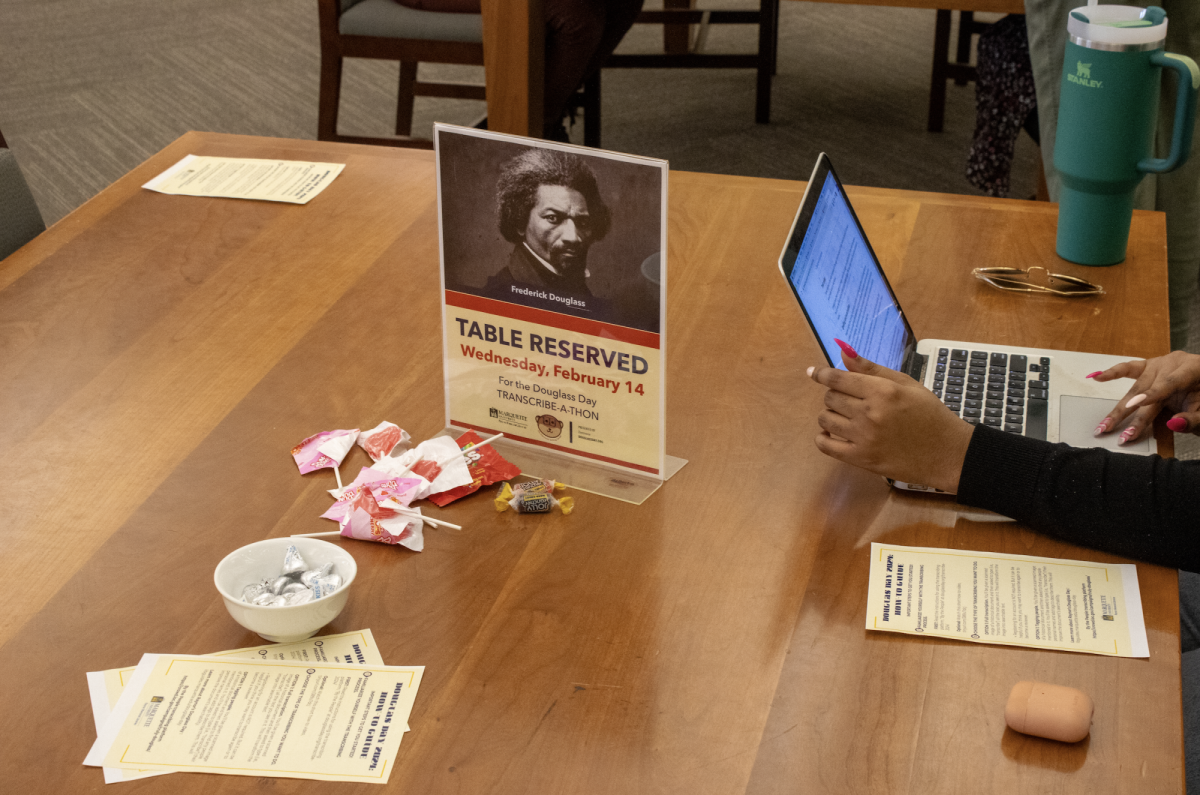This year in an effort to honor the work of Fredrick Douglass, Marquette hosted a Transcribe-a-thon in the Raynor Memorial library on Douglass Day, Feb. 14.
Douglass Day is a nationally celebrated holiday that aims to honor the work of Fredrick Douglass who was an abolitionist and activist during the Civil war era. This day is celebrated with collective action that honors Black history during the month of February.
The transcribe-a-thon welcomed students to transcribe some of Douglass’ letters into a national database, through the Library of Congress that is publicly accessible. The event was co-hosted by the Norman H. Ott Memorial Writing Center Writing Center and the Raynor Memorial Library.
This year the transcribe-a-thon was focused on transcribing letters that Douglas wrote throughout his life.
Valeria Beech, a reference librarian at Raynor Memorial Library has been involved in the event for several years. She said that students did not need to have experience with transcriptions before volunteering, and that they encouraged everyone to participate.
Each document that is transcribed is then reviewed by more volunteers to ensure that the transcriptions are whole and accurate. It takes at least two volunteers to do the whole process; one to do the original transcription and then one to review the transcription.
Jordan Nash, a first-year in the College of Health Sciences said that she attended the event because she was interested in the general idea of a transcribe-a-thon and she had never participated in one before.
“There’s not a lot of reference material for this stuff, especially for Black activists.” Nash said.
Jenn Fishman, an associate professor of English and co-director of the Ott Memorial Writing Center, said that transcribe-a-thons have been happening at Marquette for several years.
“This is Marquette’s contribution to a national transcribe-a-ton, which is an activist effort to make the works of Frederick Douglas and other historical black authors, artists and activists works more accessible to us. Across the country people sign up to run transcription stations,” Fishman said.
Students had thousands of options to choose from and then students could choose whichever document they wanted and could begin work transcribing them.
“If students aren’t exposed to this primary source work, then they don’t have the chance to make up their own minds…And it will be useful down the line for further researchers, future students, and its part of our country’s history,” Beech said.
This story was written by Ruby Mulvaney. She can be reached at ruby.mulvaney.marquette.edu.





